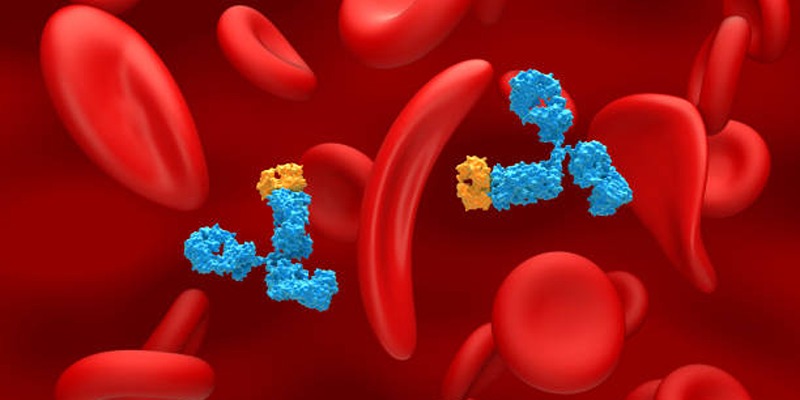Which Essential Nutrients Are You Missing, and How Can You Fix It?
Nutrients are fundamental to health and are essential in bodily functions that produce energy, provide immunity, and sustain brain function. However, many unknowingly have a nutrient deficiency caused by inadequate diet, lifestyle choices, or underlying health conditions. Deficiencies can cause fatigue, lowered immunity, and long-term health risks. If a person eats a balanced diet of vitamins, minerals, proteins, and fats, he will avoid these conditions and enjoy a good life. This article will examine four critical nutrients that are often neglected and also tell you how to include them in your diet easily.
Vitamin D: The Sunshine Vitamin You May Be Lacking
Vitamin D is needed for calcium absorption, bone health, and immune functioning. Nevertheless, many people are deficient due to limited sun exposure, especially in colder climates or among people who spend most of their time indoors. Manifestations of vitamin D deficiency include fatigue, muscle weakness, and increased susceptibility to infections. The best sources of vitamin D come from sunlight, fatty fish (e.g., salmon), fortified dairy products, and supplementation. Having a regular schedule of sun exposure while eating a diet that includes lots of vitamin D ensures the maintenance of optimum levels and promotes overall well-being.

Magnesium: The Underrated Mineral for Stress and Sleep
Magnesium participates in over 300 enzymatic reactions in the body, affecting muscle function, nerve signaling, and sleep quality. Unfortunately, due to processed foods and soil depletion, today's diets are often low in magnesium. Symptoms of magnesium deficiency may include cramps in the muscles, anxiety, disrupted sleep, low energy levels, and fatigue. Increase magnesium consumption by incorporating green leafy vegetables, nuts, seeds, and whole grains into the diet. Magnesium supplementation can also be of benefit, especially for individuals who have challenges with stress or sleep. One can foster relaxation, boost mood, and promote good health by prioritizing magnesium-rich foods.
Omega-3 Fatty Acids: The Heart-and-Brain Health Powerhouses
Omega-3s are essential fats that promote heart health, stave off inflammation, and boost cognitive performance. Since the human body cannot manufacture these fats, they must be acquired exclusively through diet. Fatty fish (wild-caught) such as salmon, sardines, and mackerel are the superstar sources of omega-3s. Plant-wise, flaxseeds, chia seeds, and walnuts are also sources. Deficiencies can contribute to poor heart health, cognitive decline, and inflammatory joint pain. Daily supplementation of omega-3-rich foods can help maintain cardiovascular and brain function and provide protective effects against chronic diseases.
Iron: The Key to Energy and Circulation of Oxygen
Iron is crucial for manufacturing hemoglobin, the red blood cell protein that transports oxygen within the body. Iron deficiency can result in anemia, which manifests in fatigue, dizziness, and impaired immunity. Children, vegetarians, and athletes are at risk of iron deficiency. To maintain adequate iron levels, consume foods such as red meat, lentils, spinach, and fortified cereals. Combining iron sources with vitamin C-rich foods, like citrus fruits and bell peppers, enhances absorption, ensuring better oxygen transport and energy levels.
How to Assess Your Nutrient Levels
Knowing your body's nutritional requirements necessitates periodic self-evaluation and, if required, medical analysis. Blood analysis can detect deficiencies, and monitoring dietary consumption can identify possible nutrition gaps. Talking to a health practitioner or nutritionist can yield specific advice on lifestyle, diet, and medical conditions. Maintaining a food diary and employing nutrition-tracking software can ensure proper nutrient balance. Detection of deficiencies early on can avert long-term health issues and maximize overall wellness.
Best Diets to Provide Optimal Nutrient Intake
A balanced diet emphasizing whole, nutrient-rich foods is the best way to avoid deficiencies. The Mediterranean diet, high in healthy fats, lean protein, and fresh vegetables, is a great way to get the necessary nutrients. Plant-based diets are also rich in vitamins and minerals if planned well. Including a mix of fruits, vegetables, lean proteins, and whole grains in daily meals will ensure that the body gets enough nutrients. Reducing processed foods and excess sugar contributes to a healthier and more balanced nutritional profile.
When to Consider Supplements
While a balanced diet is the best way to obtain essential nutrients, some individuals may require supplements due to dietary restrictions, health conditions, or specific lifestyle factors. Vitamin D, omega-3s, and iron supplements are commonly recommended for those at risk of deficiencies. However, supplementation should be approached cautiously and under medical supervision. Choosing high-quality, third-party-tested supplements ensures safety and effectiveness. It's essential to use supplements as a complement to, rather than a replacement for, a nutritious diet.

The Relationship of Nutrients and Long-Term Health
Deficiencies in nutrients can lead to the onset of chronic diseases like osteoporosis, cardiovascular disease, and mental decline. Proper levels of nutrients ensure longevity, enhance energy levels, and optimize quality of life. Ongoing research reinforces the function of vitamins and minerals in disease prevention. Following a nutrient-dense diet and having knowledge about making food choices contribute to long-term health benefits, further emphasizing the need for optimal nutrition throughout one's life.
Basic Lifestyle Modifications to Improve Nutrient Absorption
Outside of diet, some lifestyle changes can improve nutrient absorption and overall health. Hydration is essential to transport nutrients, and drinking sufficient water daily is imperative. Types of cooking, including steaming rather than boiling, preserve the nutritional content of vegetables. Cut back on caffeine consumption to avoid nutrient loss. Regular exercise also enhances circulation, facilitating the delivery of nutrients into the body. Gradual, persistent changes result in improved nutrient absorption and use, contributing to increased well-being and vitality.
Conclusion:
Most individuals inadvertently fall short of essential nutrients, which may compromise their health. Learning about vitamin D, magnesium, omega-3 fatty acids, and iron can prevent deficiencies and maximize well-being. Through a varied diet, nutrient monitoring, and well-informed decisions about supplements and lifestyle habits, it is possible for people to maintain peak health. Opting for prioritized nutrition strengthens body energy and mind power but also aids in preventing long-term disease. With responsible efforts taken now, people can have a better and more colorful future ahead.











